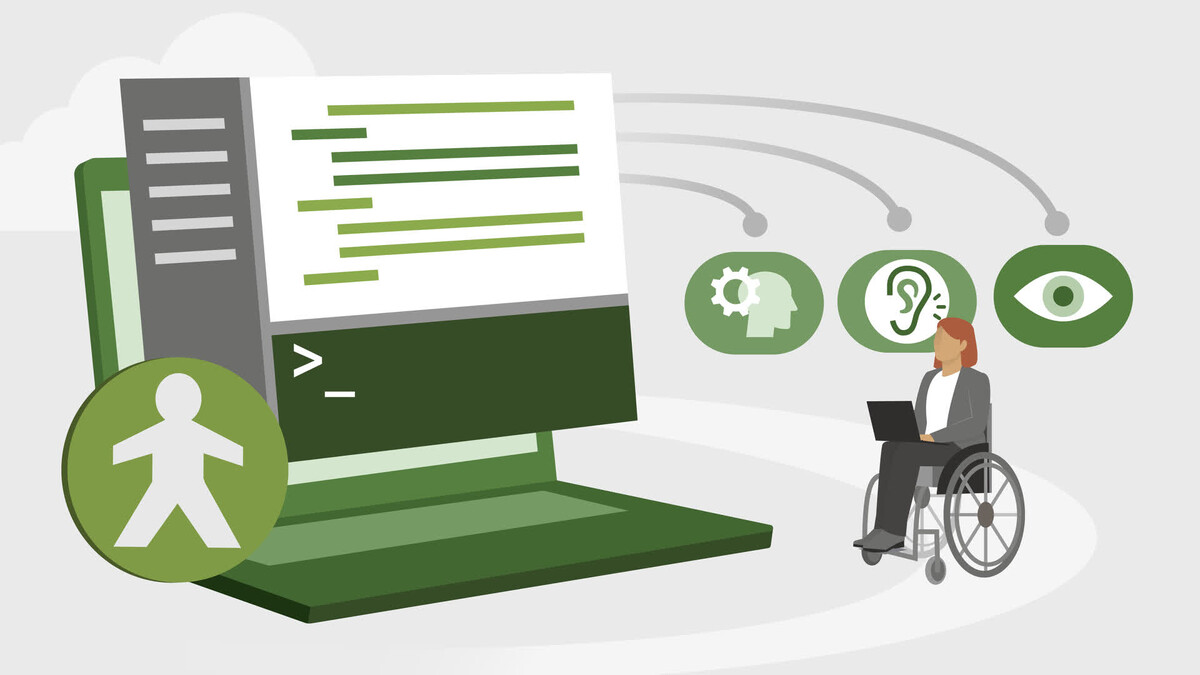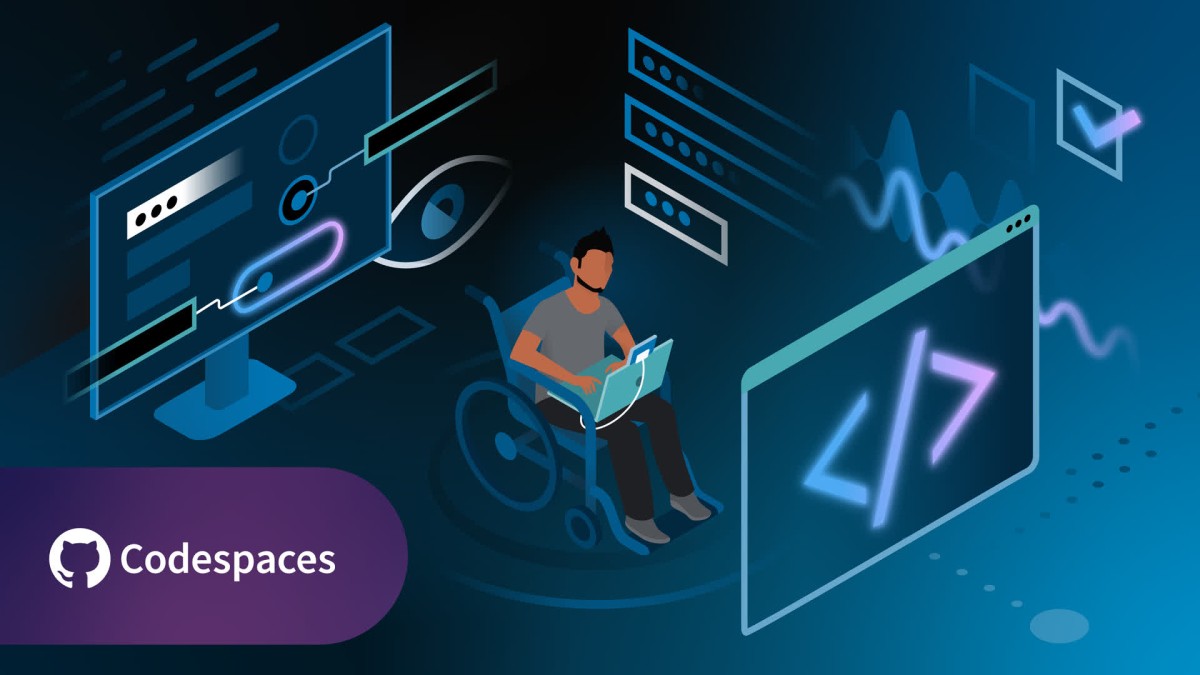Who Needs Web Accessibility?
Plain language summary
Some people with disabilities can't use websites when they are not accessible. Also, sometimes people don't understand that people with disabilities all have different needs. Everyone benefits from accessible websites.
Who Struggles?
Web Accessibility and the Wheelchair
The considerations we make in web accessibility are different from the considerations we need to make for accessibility in the built environment.
I often come across graphics representing web accessibility like this:



From many of these drawings, one would assume that wheelchair users benefit the most from web accessibility.
But really, the ability to walk is not super relevant to the question of whether one can access websites and digital content.
Disabled does not just mean 'Wheelchair'
Designers somehow cannot help but include wheelchair users in illustrations about web accessibility.
We can maybe chalk this up to a general lack of awareness of the diversity of all the folks who are Disabled and/or have functional limitations.
For example, Deaf people often tell airport stories about being presented with a wheelchair that they did not ask for. Many Deaf people notify the airline ahead of time that they are Deaf and will require extra assistance.
And sometimes, airlines just assume this means wheelchair, without stopping twice to think about the fact that not being able to hear does not impact one's ability to walk.
We cannot understand web accessibility without first appreciating the range of Disabled diversity. We have to think beyond the traditional 'accessibility symbol' with the figure in a wheelchair if we want to understand who web accessibility is for.
Disability and Web Accessibility
Here are some functional limitations that can have an impact on one's ability to use the internet:
- Ability to see
- Ability to hear
- Ability to distinguish colors
- Ability to tolerate flashing lights
- Ability to control a mouse or touchpad
- Ability to understand complex interfaces
- Ability to persist in task completion and avoid distractions
As we look over this list, we can map these abilities to people who struggle with these functional limitations on a permanent basis.
- Blind folks and folks with low vision
- Deaf and hard of hearing folks
- Folks with color sensitivity deficiency / 'color blindness'
- Folks with photosensitive epilepsy
- Folks with conditions that interfere with manual dexterity, including physical injury, neurological disorders, orthopedic disorder, paralysis and limb difference.
- Folks with intellectual and/or developmental disabilities, and/or neurodivergence.
- Folks with ADHD.
Lots of Disabled people have multiple disabilities. It can be especially hard when multiple functional limitations compound. For example, a Deaf person can read captions burned into a video, but a DeafBlind person may not be able to.
Not just Disabled people
Disabled people are the ones who need web accessibility. But they are not the only people who benefit from it being there.
You don't have to have a motor disability to need keyboard accessibility. What if your mouse suddenly died, leaving you no choice but to troubleshoot the problem using only your keyboard to navigate to settings?
You can have perfect vision and still occasionally need high-contrast websites. Imagine, as you're trying to find the hotel's website on a sunny day in Belize, you still may struggle to make out details on a screen washed out from the sun.
And the world is harsh. Anyone can lose any ability tomorrow. If you aren't Disabled right now, well. Let's just say you're not Disabled yet. Sometimes we refer to non-Disabled people as 'temporarily abled.'
Anybody can join us. Nobody is immune.

Disabled People Rely More on Technology
Here's a final factor to consider: Disabled people are more reliant on the internet to get stuff done. It can be much harder to leave the house, for a variety of reasons.
The internet has been a key tool for many Disabled people who would have otherwise had a much harder time gaining autonomy and independence.
This means that when things are not accessible online, the impact is particularly high.
